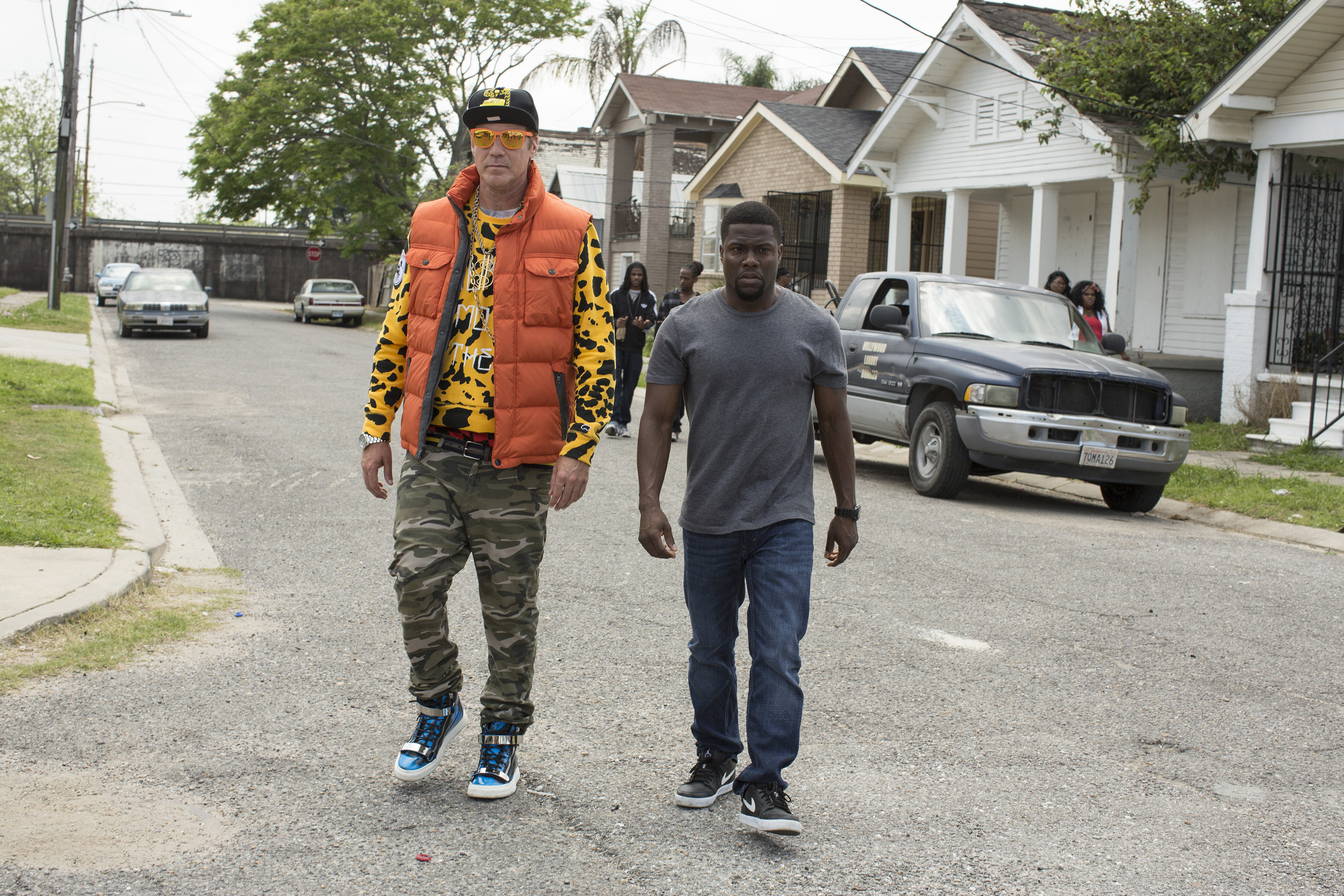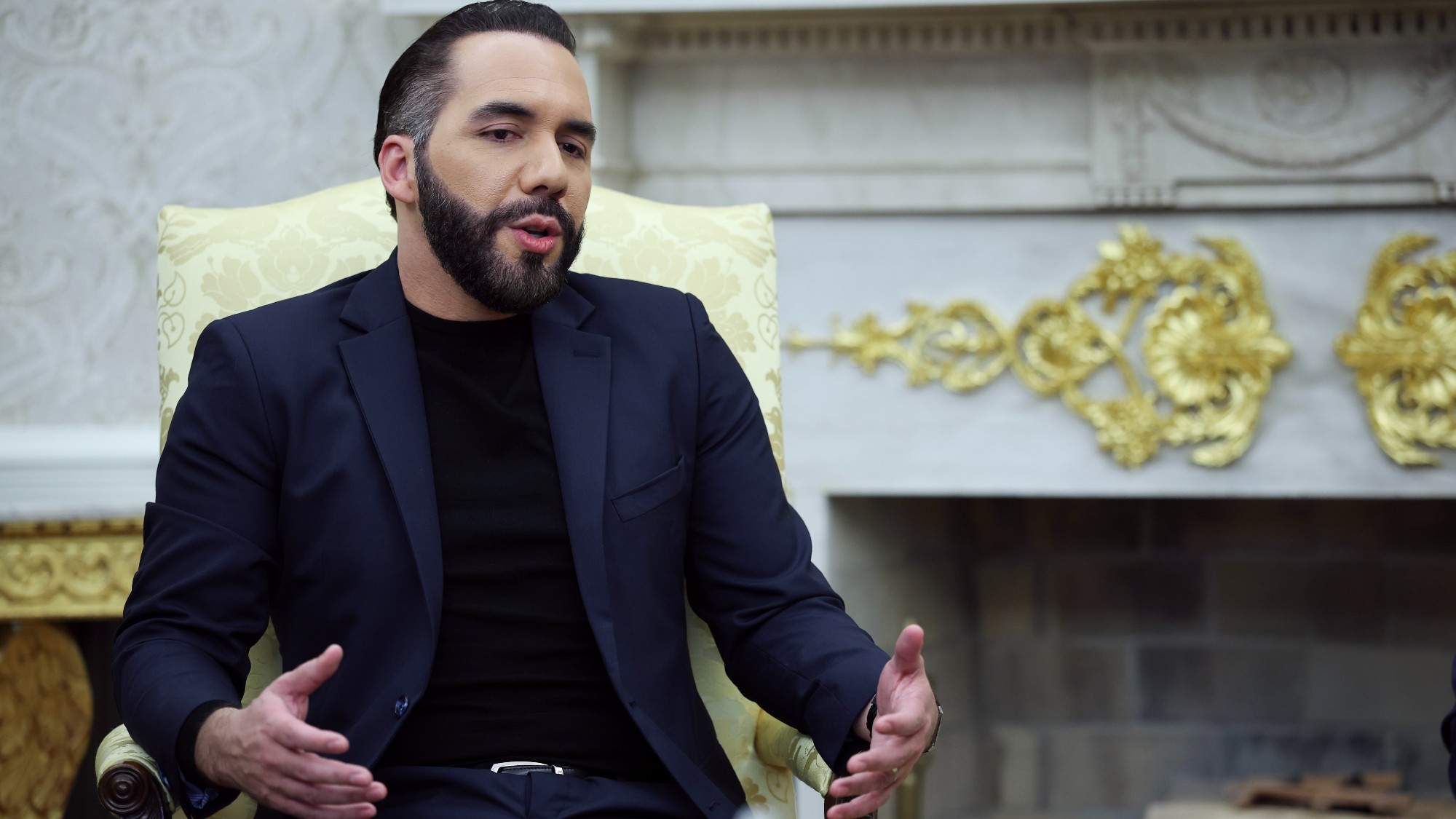Why Hollywood needs to stop treating prison rape as a punchline
The Will Ferrell-Kevin Hart comedy Get Hard is the latest in a string of movies and TV shows to wring laughs by trivializing the victimization of prisoners


Get Hard — a new comedy starring Will Ferrell and Kevin Hart, two of the biggest box-office draws in Hollywood comedy — is practically destined for success. The movie, which stars Ferrell as a convicted corporate fraudster who hires a man (Hart) to teach him how to survive in prison, is projected for a $100 million-plus gross on the backs of its two big-name stars. With Ferrell and Hart headlining the movie, it doesn't really matter that writer/director Etan Cohen's only non-Get Hard directorial credit is a short called "My Wife Is Retarded," or that America already rejected Big Stan, a 2007 Rob Schneider vehicle with a premise that is basically identical.
Unfortunately, Get Hard has one other thing in common with Big Stan: a horrifically glib exchange designed to wring sneering laughs out of the very real threat of prison rape. "There's a 100 percent chance that you're going to be somebody's bitch. Ten years of this," says Hart in the latest trailer for Get Hard, clapping his hands together and grunting to mimic the sound of a violent gang rape. "You? 'No! I don't want any more! Stop! That's enough!' Too late. He done tagged the next guy in."
If there's a meager defense for Get Hard's blasé treatment of prison rape, it's that the movie is far from alone. For decades, movies and TV shows — including many specifically designed for children — have gleefully used prison rape as a punchline, both euphemistically and explicitly. These jokes often double as homophobic. Sometimes they're tinged with regressive racial overtones. (Salon highlights a particularly bizarre exchange from 2012's Hit & Run, in which a character played by Bradley Cooper tells a friend he was raped in prison, only to be peppered with questions about his attacker's race.)
Subscribe to The Week
Escape your echo chamber. Get the facts behind the news, plus analysis from multiple perspectives.

Sign up for The Week's Free Newsletters
From our morning news briefing to a weekly Good News Newsletter, get the best of The Week delivered directly to your inbox.
From our morning news briefing to a weekly Good News Newsletter, get the best of The Week delivered directly to your inbox.
Last year, HBO's Last Week Tonight compiled a supercut of movies and TV shows that have gleefully joked about prison rape. A highlight reel of clips ends with the Shrek spin-off Puss in Boots, in which Humpty Dumpty euphemistically expresses his terror at "what they do to eggs in San Ricardo Prison." ("Do you get it?" says host John Oliver. "The egg is going to get f---ed against its will. That's why it's funny.") Puss in Boots isn't the only piece of children's entertainment to smuggle in a covert joke about prison rape: SpongeBob SquarePants, Looney Tunes, Rocko's Modern Life, and The Powerpuff Girls have all featured similar gags.
I know, I know: they're just jokes. No one expects a movie like Get Hard to say anything meaningful about a subject as serious as prison rape. I understand the impulse to shrug it off, and to dismiss anyone who takes a simple joke so seriously as a humorless bore.
But like it or not, popular culture plays a major role in shaping and defining our national sense of morality. The sad truth is that America doesn't need another excuse to trivialize or ignore prison rape. Between 2011 and 2012, the Bureau of Justice found that a prisoner is 30 times more likely to be raped or sexually assaulted than a woman outside of prison. One in 25 prisoners reported being sexually assaulted within a single year. Youths in juvenile detention facilities were more than twice as likely to be victimized. And given the cultural shaming that comes along with reporting a sexual assault — particularly for men — those numbers are almost certainly under-reported.
These are serious problems, and they deserve serious consideration. But while we can't reverse a sexual assault epidemic in a single day, we can at least agree to stop laughing at its victims, turning a horrific and traumatic experience into lazy, dehumanizing jokes about dropping the soap.
Sign up for Today's Best Articles in your inbox
A free daily email with the biggest news stories of the day – and the best features from TheWeek.com
Screenwriters, a modest plea: If you're going to make a joke about prison rape, you'd better have a funnier punchline than: "Isn't it funny when inmates get sexually assaulted?" Want to wring comedy out of prison rape? Stop making the victims of sexual assault the targets of your jokes. You might start by satirizing a prison system that does so little to prevent these kinds of attacks from happening, or lambasting a culture that greets a national sexual assault epidemic with a laugh. It would be as pitch-black as comedy gets, but at least it would have the advantage of not being morally repugnant.
Scott Meslow is the entertainment editor for TheWeek.com. He has written about film and television at publications including The Atlantic, POLITICO Magazine, and Vulture.
-
 The worst coral bleaching event breaks records
The worst coral bleaching event breaks recordsThe Explainer Bleaching has now affected 84% of the world's coral reefs
By Justin Klawans, The Week US
-
 Nayib Bukele: the Salvadoran ally in Trump's deportation machine
Nayib Bukele: the Salvadoran ally in Trump's deportation machineIn the Spotlight El Salvador's popular strongman rose to power promising to make his country safe
By David Faris
-
 Magazine solutions - May 2, 2025
Magazine solutions - May 2, 2025Puzzles and Quizzes Issue - May 2, 2025
By The Week US